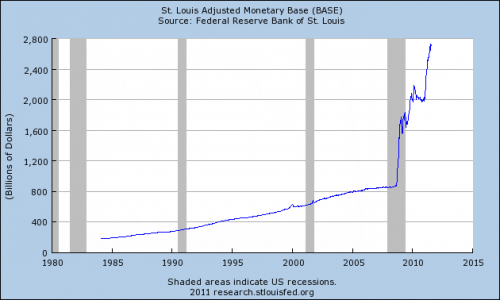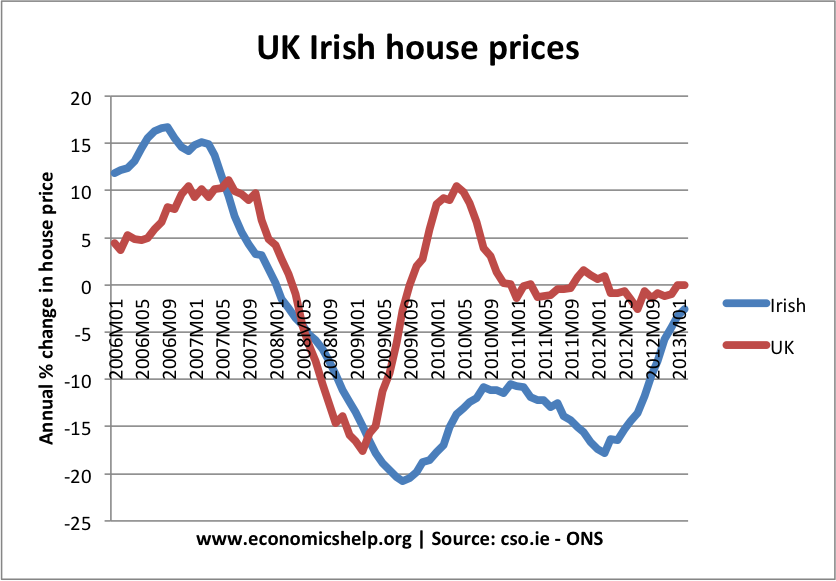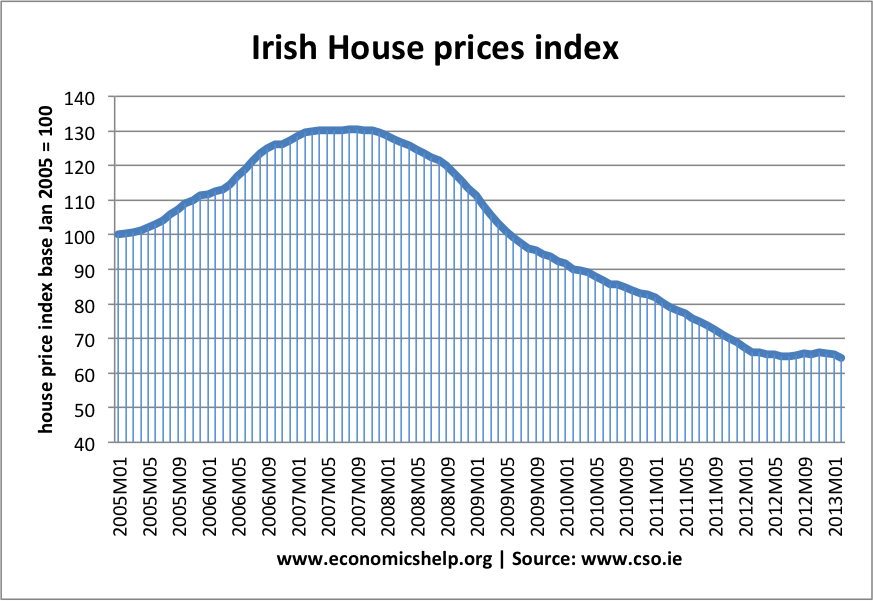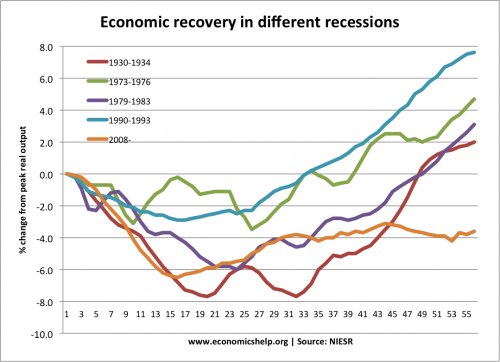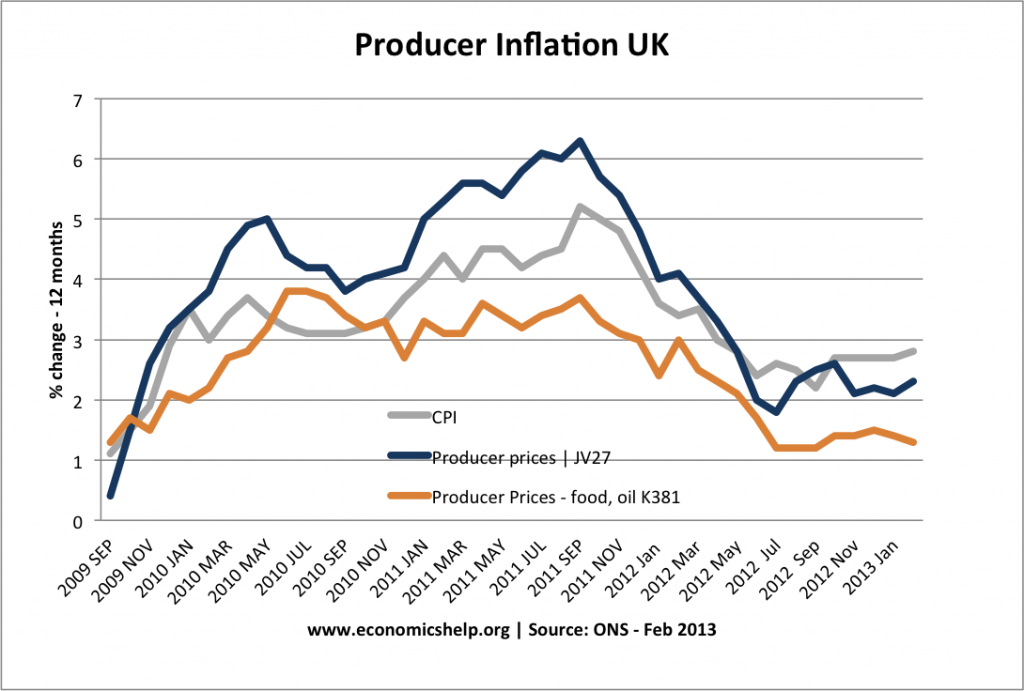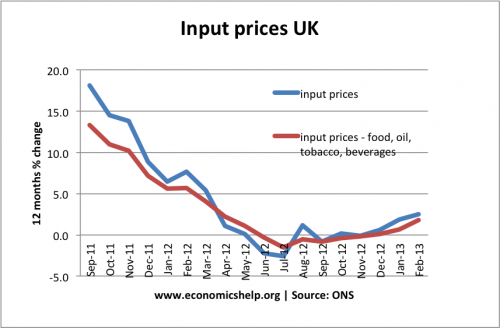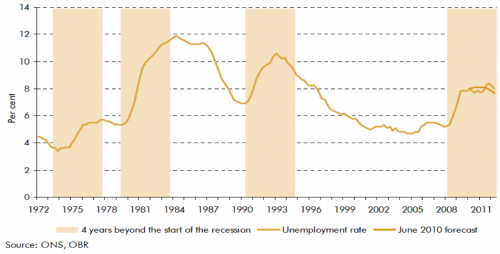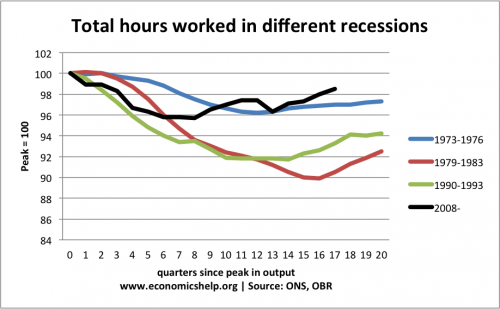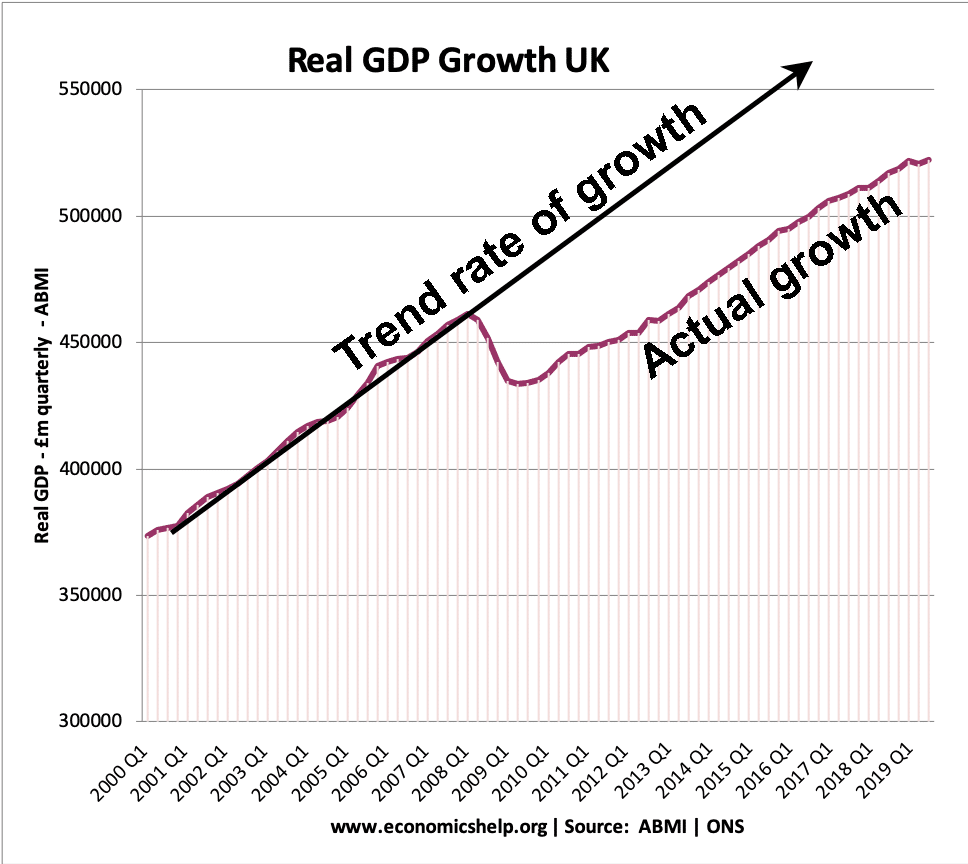Readers Question: In response to the post on ‘printing money, imports and inflation’, why can’t the British government just print lots of money and import goods from abroad to relieve the pressure on its budget?
In theory, they could do that. But, if you print money and spend it on imports, you would see a significant depreciation in the exchange rate. The British government can print Pound Sterling, but to buy imports they have to increase supply of Sterling on the foreign exchange, leading to a lower value of Sterling.
With a big increase in import spending, there would also be a deterioration in the current account. Though the depreciation in the exchange rate would offset this because the depreciation in the exchange rate makes exports more competitive.
The problem of the depreciation in the exchange rate is that it would lead to imported inflation. The price of imports rises and this contributes to cost-push inflation leading to lower living standards. There would also be a concern that a depreciation in the exchange rate may cause exporters to have less incentives to cut costs and improve efficiency because they can rely on the ‘easy’ option of a depreciation.
Also, there would be an adverse impact on market confidence. Ff the government printed significant amounts of money to buy imports, it would discourage foreign investors from holding UK bonds. Because foreign holders of UK bonds would see a fall in the value of their UK investment.

